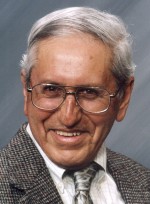My friend of many years, Emma Gomez, from New Mexico, asked me one day several years ago: “What do you do for pain?” Since she begins each day with Mass and the Eucharist, I thought she wanted to know whether I prayed over my pain and offered it up. But she was interested in what pills I was taking and I was of no help. I am one of those who endure without them if at all possible.
I thought about this conversation recently while pondering over a bill in the Connecticut legislature called by its proponents “aid in dying” and by its opponents, including the Catholic Church, as “assisted suicide.”
It is no surprise we have come to this stage. We have a pill for every pain or discomfort we might experience, from headache to muscle ache, restless legs, stiff joints, diabetes, nerve pain on the bottom of our feet, lack of sleep, anxiety, soreness, depression and countless other maladies.
Whatever bodily dysfunction we might experience, there is a pill for it, produced by a pharmaceutical industry earning tremendous profits. In addition, we have alcohol and drugs of an infinite variety, some legal and others illegal, used to cope with life’s stresses.
[hotblock]
And when the end is near, we have medications to help us endure the pain, no longer hoping to make us well but to help us endure, a compassionate response to suffering.
Now, in Connecticut, as in three other states, we could have a pill to end life at a time of our choosing. The legislation would allow a physician to prescribe “a medication that [the] patient can self-ingest,” if the patient, being of sound mind and having no more than six months to live, decided to give up and die. The proponents call it a “compassionate choice.” I think such a law would be a big mistake.
Almost 40 years ago, I was at the same stage. I was critically ill with the effects of an amoebic abscess in the liver that burst into my chest and filled my heart sac with inflammation. Almost no one survives. During the weeks I was in intensive care in Lenox Hill Hospital in Manhattan, everyone who cared for me bolstered my hope.
I particularly remember a nurse who took a special interest in me. She was of Irish descent, perhaps 35 years old, with a stocky frame and brown hair. She had an inner beauty I will never forget. She came into my cubicle daily and, instantly sensing when I was discouraged, held my hand and cheered me.
My weight had dropped to 90 pounds. I was emaciated. I could hardly stand. But every day, she got me out of bed, put her arm around me and took me for a walk down the hall.
One Friday afternoon, she told me, “I have the weekend off. I want you to promise me that you will be here when I get back on Monday.” I did not want to disappoint her. I regret that I do not now remember her name.
That nurse and everyone else fulfilled what I see as the only roles of medical care: to save and nourish life. It seems seductive to choose when to die, but assisted suicide is a Rubicon we should not cross: too many risks, possibilities for abuse. Worse, it is morally wrong. It will demean all of life. Is the fullness of life to avoid pain, or to learn and grow from it?
PREVIOUS: No matter what you seek in life, keep Christ close
NEXT: Starting a culture of inclusion in the classroom




Share this story